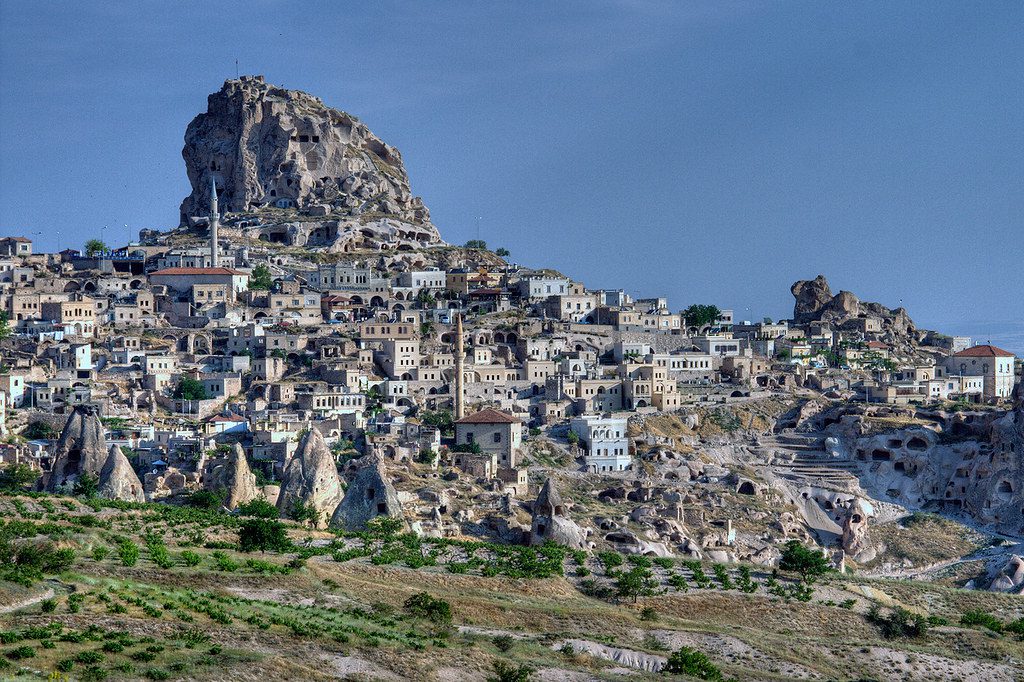Skift Take
Turkey until recently was hailed as one of Europe’s most attractive travel destinations. But rising geopolitical tensions and souring relations between Washington and Ankara are now threatening the fragile sector’s growth and potential.
Turkey has long been known for its vibrant and attractive tourism destinations, from the Byzantine and Ottoman palaces in Istanbul to its snow-white hot springs in Pamukkale, known as the “cotton castle” in Turkish.
Travel and tourism in Turkey contributed about $96 billion (TRY 461.3 billion) to the country’s economy in 2018, topping European travel growth for the year, according to the World Travel & Tourism Council.
Tourism represents about 12 percent of the country’s gross domestic product (GDP) — meaning that one in every eight Turkish lira is now generated by travel and tourism, says the WTTC.
But after witnessing such a recent strong rebound after years of a slump, the sector is now increasingly vulnerable amid regional geopolitical unrest, a global economic slowdown, as well as Ankara’s military offensive in northern Syria against Kurdish-led fighters.
Today, tour guides operating across the country — from Istanbul to the ancient Aegean city of Ephesus — say that the number of visitors has visibly decreased due to geopolitical instability, particularly the violence in Syria.
Like with any global tourist destination, political stability and safety are basic prerequisites for visitors. Even the mere threat of violence or war in nearby regions can have significant short-term, as well as long-term, impact on any country’s tourism sector.
“Tourism in Turkey is very fragile and easily affected by any problems in our neighboring countries,” said Nihat Yilmaz, a locally licensed tour guide. “There was a decreasing number of tourists (this year) because of the issues surrounding our country.”
Yilmaz, who started his career working in restaurants and hotels, has always been deeply entrenched in the hospitality sector. He even met his wife, who is also a tour guide, while working in UNESCO-recognized Cappadocia — a historical city known for its distinctive “fairy chimney” rock formations, cave dwellings, and the hundreds of hot air balloons soaring across its sky during sunrise.
The 36-year old conducts private tours for visitors up to 150 days a year.
Yilmaz mainly works with tourists from the U.S., Canada, Europe, and Australia. But the latest tensions between Ankara and Washington, D.C., have put a damper on his business.
The economy, he said, has suffered due to the latest geopolitical tensions, and the “fragile” tourism sector has been the hardest hit due to Turkey’s military offensive in Syria.
“The most impactful issue has been the Syrian war, then political issues with U.S. and European countries,” he said.
Yilmaz added that his business has seen a few cancellations from clients in recent months due to the geopolitical uncertainties and recent tensions.
The number of foreign visitors arriving to the country in November 2019 plunged 49 percent month-over-month to 2.19 million, according to official figures from Turkey’s Ministry of Tourism and Culture.
In fact, the number of foreign visitors has fallen consecutively each month from July through November. When compared to 2018, however, the number of visitors arriving to Turkey rose 14.31 percent year-over-year to 42.9 million in the first 11 months of 2019.
On December 11, a U.S. Senate committee also supported a legislation to impose sanctions on Turkey after Ankara purchased and tested a Russian-made S-400 missile, despite NATO’s admonitions against the air defense system.
“Security is another concern for visitors. Many visitors think that Turkey is at war all the time,” said Yilmaz. “I was surprised to have a nervous couple on my tour once in Cappadocia because they thought we were close to the Syrian border.”
Turkey shares a border with northern Syria. Cappadocia, which is to the southeast of Ankara in the center of Turkey, is about a seven-hour drive from Aleppo, Syria.
Turkey’s central government is currently grappling with a widening budget deficit. In the first 11 months of 2019, the budget deficit amounted to 92.94 billion Turkish liras ($16.6 billion), compared to 72.6 billion Turkish liras ($14.8 billion) in 2018, according to the Anadolu state news agency.
Meanwhile, consumer prices in Turkey jumped to 10.56 percent year-over-year in November, up from 8.6 percent in October, creating other bigger issues for the country’s central bank.
Turkey’s latest inflation rate — although still high — eased considerably since October 2018, when it soared above 25 percent following a currency crisis that nearly crippled the economy.
At the time, holidays to Turkey had started to rise, as European visitors found that their money went a long way after the Turkish lira lost 15 percent of its value against the U.S. dollar.
Since then economic growth in Turkey has picked up, supported by expansionary fiscal policy, more promising eternal financing conditions, and rapid credit provision by state-owned banks, the International Monetary Fund (IMF) said on December 27 after concluding its Article IV consultations with Ankara.
But, the “current calm remains fragile” and vulnerabilities still persist, the Washington-based lender said.
“These include low reserve buffers, large external financing needs, and stressed bank and corporate balance sheets.”
The IMF stressed the need for Turkey to adopt “prudent” policies to address its weaknesses, as well as the need for a “comprehensive package of reforms to secure stronger and more resilient growth over the medium term.”
The Daily Newsletter
Our daily coverage of the global travel industry. Written by editors and analysts from across Skift’s brands.
Have a confidential tip for Skift? Get in touch
Photo credit: Tourism to destinations like Cappadocia in Turkey, known for its "fairy chimneys," may suffer because of the realities of geopolitics. Timothy Neesam/GumshoePhotos / Visual Hunt
